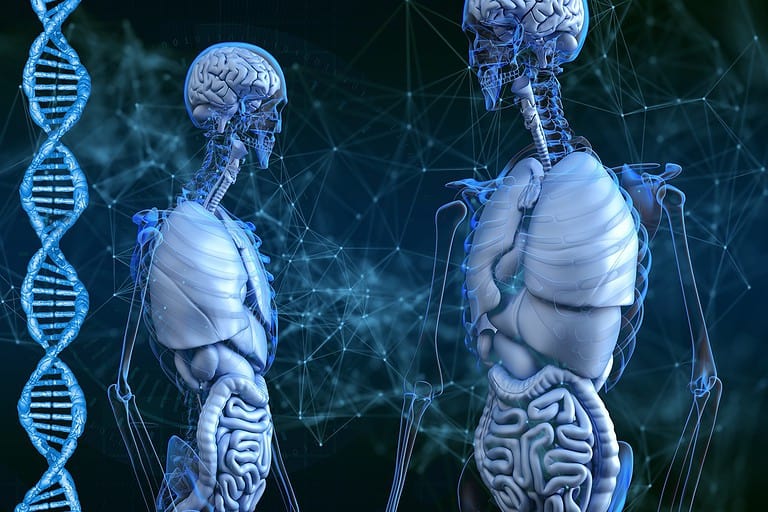What Does It Mean to Have the Habit of Healthy Eating?
Healthy eating is a habit that can significantly improve one’s overall health and well-being. It involves consuming foods that are rich in nutrients and avoiding those that are highly processed with added sugars and sodium. While it may seem daunting to make significant changes to one’s diet, developing the habit of healthy eating can be a gradual process that leads to long-term benefits.
Having the habit of healthy eating means making conscious and wise choices about what you consume, considering the nutritional value of each food item. It involves incorporating a variety of fruits, vegetables, whole grains, proteins and healthy fats into your diet while limiting the intake of processed foods, sugary drinks and salty snacks. Adopting this habit can help reduce the risk of chronic diseases such as heart disease, type 2 diabetes and certain cancers.

Developing the habit of healthy eating can also lead to improved mental health, increased energy levels and better sleep. It can positively impact one’s mood and overall quality of life. While it may take time to adjust to a new way of eating, small changes can make a big difference. It’s important to remember that healthy eating is not about deprivation or strict rules, but rather about making sustainable choices that support your health and well-being.
Benefits of Healthy Eating
Healthy eating can have a significant impact on our overall health and well-being. By making wiser food choices and following a balanced diet, we can reap numerous benefits that can improve both our physical and mental health.
Physical Health Benefits
Eating a healthy diet can help us maintain a healthy weight and reduce the risk of developing chronic diseases such as heart disease, type 2 diabetes and some cancers. It can also improve our immune system, strengthen our bones and muscles and support healthy pregnancies and breastfeeding. Here are some of the physical health benefits of healthy eating:
- Helps us live longer
- Keeps skin, teeth, and eyes healthy
- Supports muscles
- Boosts immunity
- Strengthens bones
- Lowers risk of heart disease, type 2 diabetes and some cancers
- Supports healthy pregnancies and breastfeeding
- Helps the digestive system function
Mental Health Benefits
Healthy eating not only benefits our physical health but also our mental health. Studies have shown that a healthy diet can help improve our mood, reduce stress and anxiety and promote better sleep. Here are some of the mental health benefits of healthy eating:
- Improves mood
- Reduces stress and anxiety
- Promotes better sleep
Overall, incorporating healthy eating habits into our daily lives can lead to numerous benefits for our physical and mental health. By making small changes to our diet and choosing healthier options, we can improve our overall well-being and live a happier, healthier life.
Habits of Healthy Eating
Eating a Balanced Diet
Eating a balanced diet is one of the most important habits of healthy eating. It means consuming a variety of foods from all the food groups in the right proportions. A balanced diet includes:
- Fruits and vegetables
- Whole grains
- Proteins
- Healthy fats
Each of these food groups provides essential nutrients that your body needs to stay healthy. Eating a balanced diet ensures that you get all the nutrients you need without consuming too many calories.
Portion Control
Portion control is another important habit of healthy eating. It means eating the right amount of food to meet your body’s needs. Many people eat more than they need, which can lead to weight gain and other health problems. To practice portion control, you can:
- Measure your food
- Use smaller plates and bowls
- Avoid eating in front of the TV or computer
- Stop eating when you feel full
By practicing portion control, you can enjoy your favorite foods without overeating.
Mindful Eating
Mindful eating is the practice of paying attention to your food and the experience of eating. It means being present in the moment and savoring each bite. Mindful eating can help you:
- Enjoy your food more
- Recognize when you are full
- Avoid emotional eating
- Reduce stress and anxiety
To practice mindful eating, you can:
- Eat slowly and chew your food thoroughly
- Sit down at a table to eat
- Avoid distractions while eating
- Pay attention to the flavors, textures and smells of your food
Mindful eating can help you develop a healthier relationship with food and enjoy your meals more.
Tips for Developing a Habit of Healthy Eating
Set Realistic Goals
When it comes to developing a habit of healthy eating, it’s important to set realistic goals. Start by making small changes to your diet, such as adding more fruits and vegetables to your meals or swapping out sugary drinks for water. As you become more comfortable with these changes, you can gradually increase the number of healthy foods in your diet.
It’s also important to be specific when setting your goals. Instead of saying “I want to eat healthier,” try setting a specific goal such as “I will eat at least one serving of vegetables with every meal.”
Plan Your Meals

One of the best ways to develop a habit of healthy eating is to plan your meals in advance. This can help you avoid impulsive food choices and ensure that you have healthy options available when hunger strikes.
Start by making a weekly meal plan and grocery list. Choose recipes that are balanced and include a variety of healthy foods. When you go grocery shopping, stick to your list and avoid buying unhealthy snacks or processed foods.
Meal prepping can also be a helpful tool for developing a habit of healthy eating. Set aside some time each week to prepare healthy meals and snacks that you can easily grab when you’re on-the-go.
Find Healthy Alternatives
Another key to developing a habit of healthy eating is to find healthy alternatives to your favorite foods. For example, if you love pasta, try swapping out traditional pasta for whole wheat pasta or zucchini noodles. If you have a sweet tooth, try satisfying your cravings with fresh fruit instead of sugary desserts.
It’s also important to experiment with new foods and flavors. Trying new healthy recipes can help keep your meals interesting and prevent boredom with your diet.
Finally, don’t be too hard on yourself if you slip up occasionally. It doesn’t matter if you make a “mistake”, but it does matter if you repeat it, so decide to get back on track the very next time. Developing a habit of healthy eating takes time and effort, but with persistence and dedication, you can make healthy eating a lifelong habit.
Challenges to Developing a Habit of Healthy Eating
Developing a habit of healthy eating can be challenging, especially in today’s fast-paced world where unhealthy food options are readily available. Here are some common challenges that people face when trying to develop a habit of healthy eating:
Lack of Time
Many people lead busy lives and find it difficult to make time for healthy eating. Preparing healthy meals can be time-consuming, and many people resort to fast food or unhealthy snacks when they are short on time. To overcome this challenge, it can be helpful to plan meals in advance, prepare meals in bulk and keep healthy snacks on hand for when you are on the go.
Social Pressure
Social pressure can also be a challenge when it comes to developing a habit of healthy eating. Eating healthy can sometimes be seen as “boring” or “uncool,” and people may feel pressure to eat unhealthy foods in social situations. To overcome this challenge, it can be helpful to communicate your goals to friends and family, seek out like-minded individuals who share your commitment to healthy eating and focus on the positive benefits of healthy eating.

Cravings and Temptations
Cravings and temptations can also make it difficult to develop a habit of healthy eating. Unhealthy foods are often designed to be addictive and it can be hard to resist the temptation to indulge in these foods. To overcome this challenge, it can be helpful to find healthy substitutes for your favorite unhealthy foods, practice mindful eating and allow yourself the occasional indulgence in moderation. In conclusion, developing a habit of healthy eating can be challenging, but it is not impossible. By identifying and addressing the challenges that you face, you can develop a sustainable habit of healthy eating that will benefit your health and well-being in the long run.
Conclusion
Healthy eating is more than just a diet; it is a habit that requires commitment and dedication. It means choosing foods that are good for your body and avoiding those that are not. By adopting a habit of healthy eating, you can improve your physical and mental well-being and reduce your risk of chronic diseases.
Remember, healthy eating is not about perfection; it is about making small, sustainable changes to your diet and lifestyle. Start by setting realistic goals and gradually incorporating healthier foods into your meals. Don’t be too hard on yourself if you slip up; simply get back on track and keep moving forward.
By making healthy eating a habit, you can enjoy a happier, healthier life. So, start small, experiment with new foods and flavors, and be kind to yourself along the way. With a little bit of effort and a lot of curiosity, you can develop healthy eating habits that will serve you well for years to come. So, what are you waiting for? Let’s get started!







